23. The Adventures of Tintin (2011)
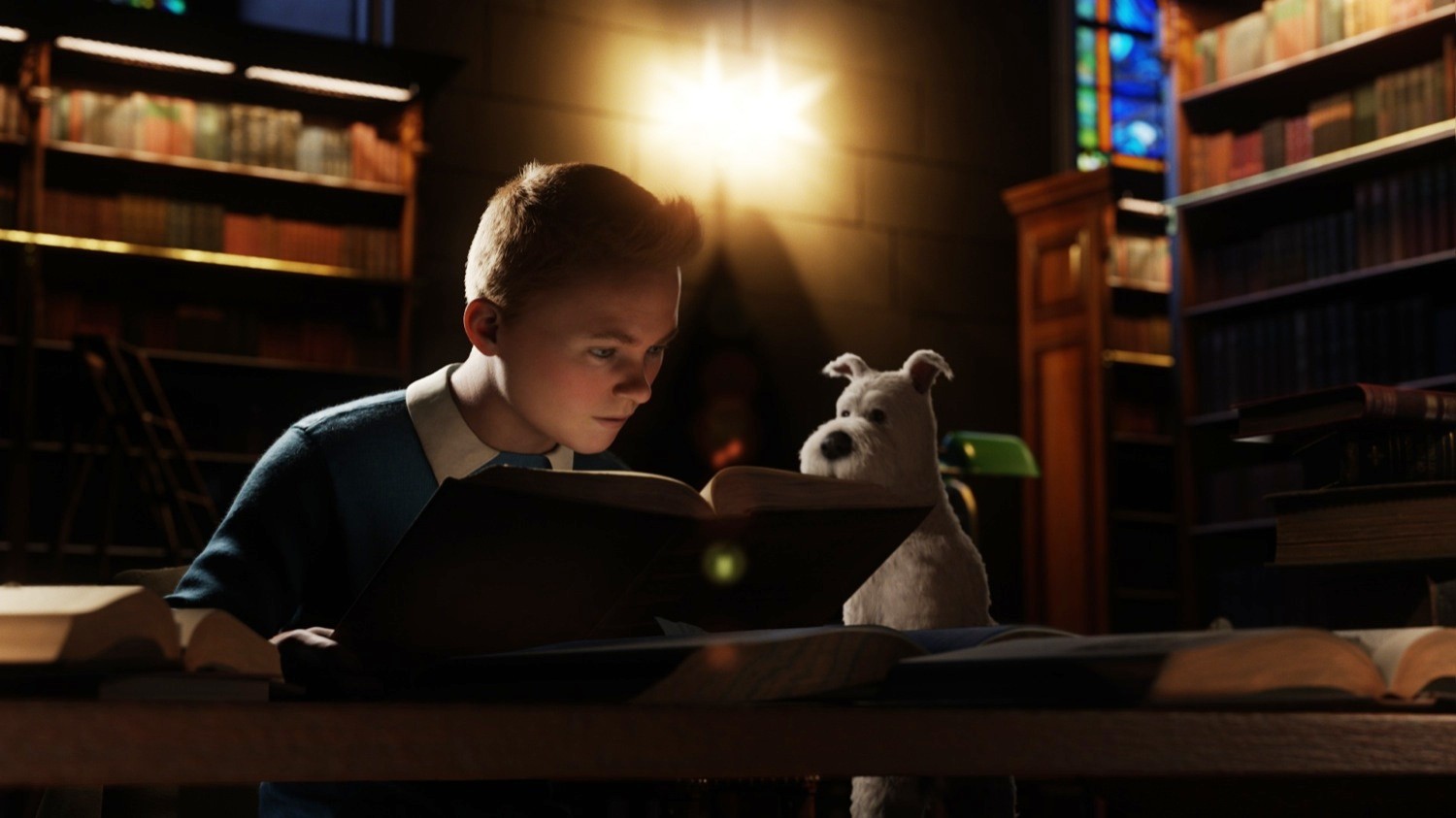
The Adventures of Tintin was a popular comic series by Belgian cartoonist Georges Remi with a publication history that spanned most of the 20th century. Focused on the various adventures of an adolescent named Tintin and his dog Snowy, along with a cast of supporting characters, the comic series was a great worldwide success. And, in true Spielberg fashion of rendering nostalgia in film form, he produced a 3D motion capture animated feature film adaptation based on three of the collected albums that was released in 2011.
While not necessarily a bad movie–it’s relatively faithful to the source material–it doesn’t ever truly feel like a Spielberg film, instead more reminiscent of other motion capture animated films released around the same time.
While the larger set pieces are eye-catching, the rest of the film is clunky, and the cast of characters from the comic books don’t completely work in animated form. If this were any other filmmaker’s project it would be considered a great success, but when placed among Spielberg’s legendary body of work, it’s a disappointment.
22. War of the Worlds (2005)
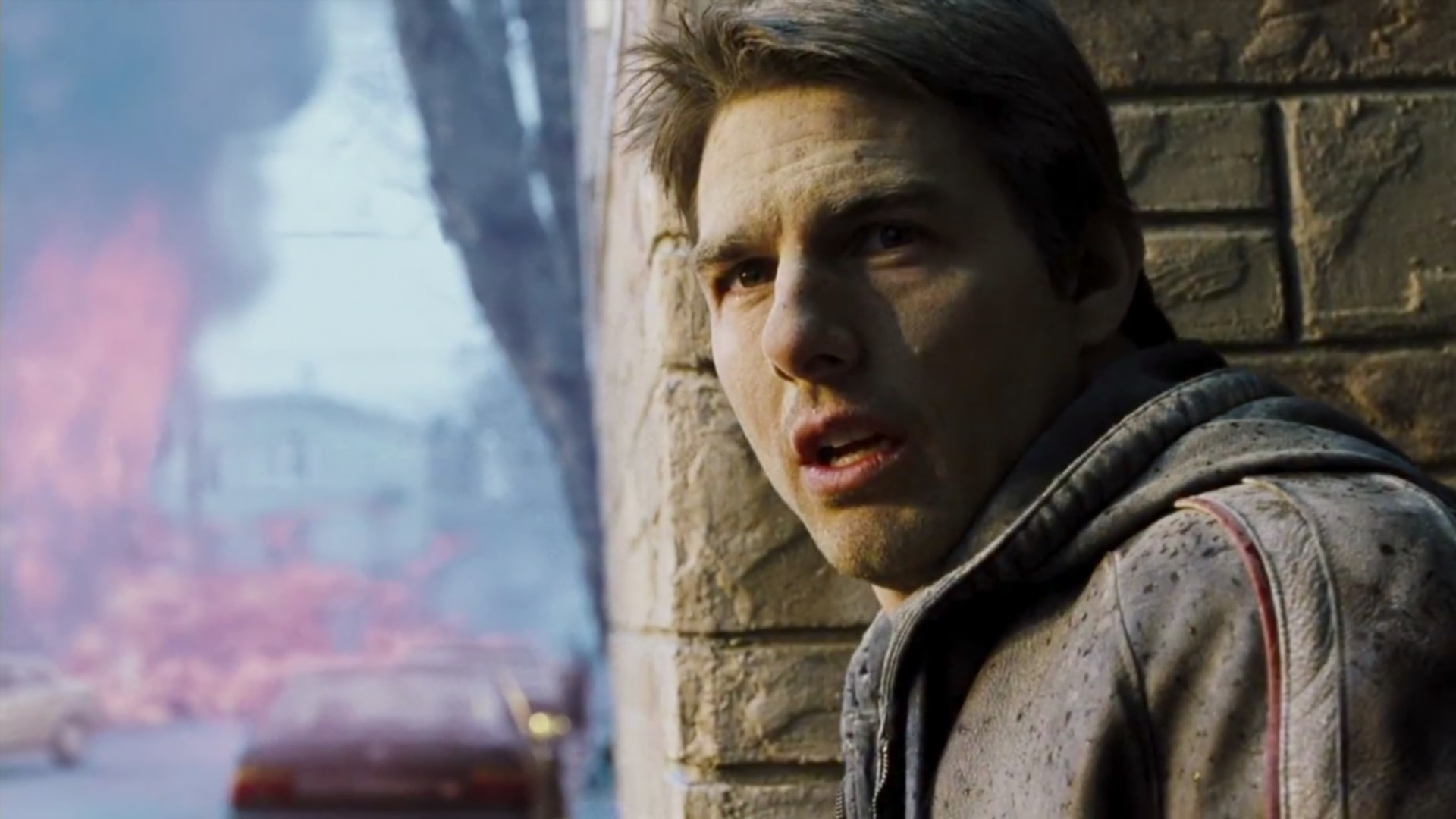
As a property, War of the Worlds has been highly influential on the science fiction genre since the publication of H.G. Wells’ original novel in 1898. Adapted across many mediums in the 119 years since–including Orson Welles’ infamous radio adaptation and the classic 1953 film by George Pal–Spielberg worked on his own version of the story, which was released in 2005.
Spielberg helmed the production working as a blockbuster director, and as such War of the Worlds is a big, special effects-heavy action film starring Tom Cruise; released at the height of the summer season, it became the fourth highest-grossing film of that year.
And in this context, it’s a pretty solid piece of work–up to a point. Unfortunately, Spielberg couldn’t commit to the darker elements of the story, particularly the idea that Cruise’s character’s family members wouldn’t all make it through (spoiler: it’s explicitly implied that his son is killed by the aliens halfway through the film, only for him to show up in the final scene hundreds of miles away alive…somehow). This sort of hedging deflates the suspense Spielberg builds throughout the film and serves as a fair warning that not all endings have to be happy.
Like many films of Spielberg’s that landed in the bottom third of this list, this is a fine movie and would even be a great success for any other director–but Spielberg isn’t just any other director.
21. War Horse (2011)
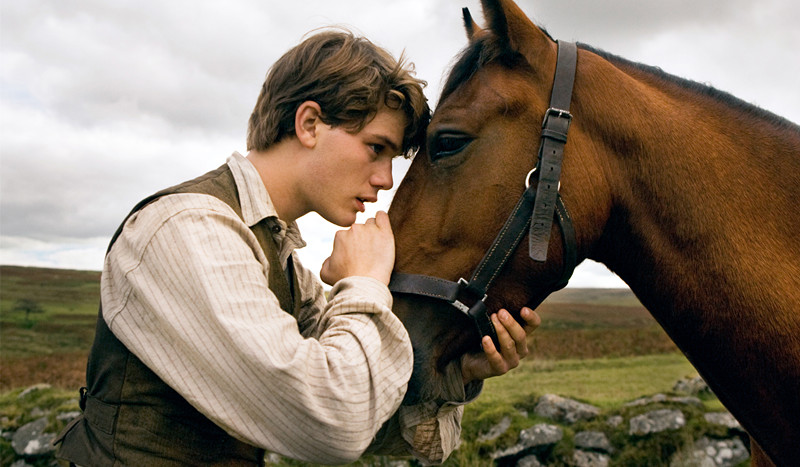
Based on the acclaimed play of the same name, which itself was an adaptation of a children’s book, War Horse follows the experiences of a horse’s life from its birth to its succession of owners through the first World War until finally being reunited with his original owner at the war’s end.
Spielberg is adept at telling war stories–some of his greatest films are set during wartime and never flinch from the brutal realities of warfare. But he’s also the director of soft-hearted fare like E.T. The Extra-Terrestrial. As a result, War Horse is a weird mix of both of these sensibilities, where Spielberg is determined to depict the harsh trench warfare of WWI while also creating a sentimental story of a boy and his horse.
It’s not necessarily a bad movie (Spielberg has never made a truly bad film in his career, 1941 excepted), but it’s not really a movie you’d watch more than once, either. Instead, it feels more like two different films–one a gritty war drama, the other a syrupy tale about the bond between man and animal–that were unsuccessfully blended together.
20. The BFG (2016)
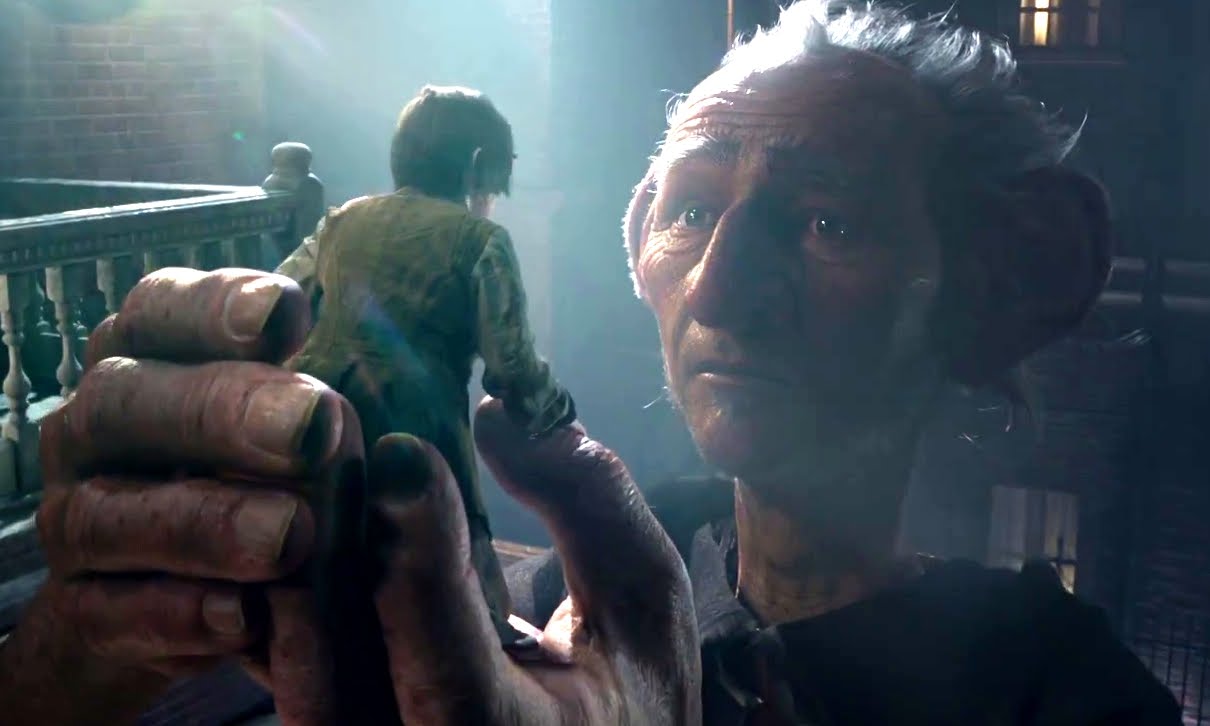
Roald Dahl had penned some of the most beloved children’s books in the 20th century, with Charlie and the Chocolate Factory, Matilda, and James and the Giant Peach being just some of his more notable work. And thanks to their enduring popularity, there have been numerous film adaptations of this work to varying success. Spielberg, never one to shy away from pursuing enduring properties to make into films, adapted Dahl’s The BFG, which was released in 2016.
The story of a young orphan girl who encounters and befriends a big, friendly giant (the titular BFG), who takes her to Giant Land, where they then go on fantastic adventures together. This utterly charming story is another motion capture animated feature by Spielberg that comes across on-screen more successfully than his previous effort using this technology, The Adventures of Tintin.
Its success speaks to the strength of Spielberg’s ability to approach fantasy material and making it work on-screen and Dahl’s own original source material alike. Unfortunately, it was released in the overcrowded summer blockbuster season and was overshadowed by fellow Disney release Finding Dory, just barely making its budget back during its theatrical run. But as a children’s film, The BFG is great, and it speaks to Spielberg’s legendary status as a director that this film–one of his best intended for younger audiences–only ranks at 19 on this list among his other work.
19. Amistad (1997)
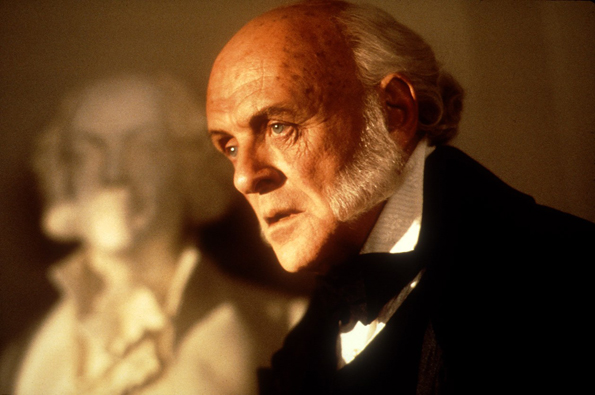
Historical dramas are one of Spielberg’s specialties, and when he turns his attention to this exalted genre, he usually knocks it out of the park. Able to capture the gravitas pivotal moments in history engender, some of his greatest work depicts historical events. In the case of depicting the 1839 mutiny on the slave ship La Amistad, Spielberg needed to strike a balance between depicting the brutalities of slavery while also creating a crowd-pleasing film.
The results are mixed: while the events of the mutiny, in which the African leader of the slaves–bound to the United States for sale–successfully takes over the ship, only to be captured by the American Navy, and they are then put on trial for piracy and murder as the question of who “owns” him is argued.
Working for abolitionists, lawyer Roger Baldwin (Matthew McConaughey) argues that by being free citizens of their own country before being captured, nobody “owns” them; the case is brought to the Supreme Court, and the abducted Africans are eventually freed.
This makes for a fine film–although rife with historical inaccuracies for sake of the story and streamlining historical events for ease of the audience’s understanding. Perhaps the biggest detriment of the film is that while it’s approaching one of the most important and controversial topics in American history, Spielberg’s sentimental, glossy cinematic style clashes incongruously with the subject matter.
18. The Sugarland Express (1974)
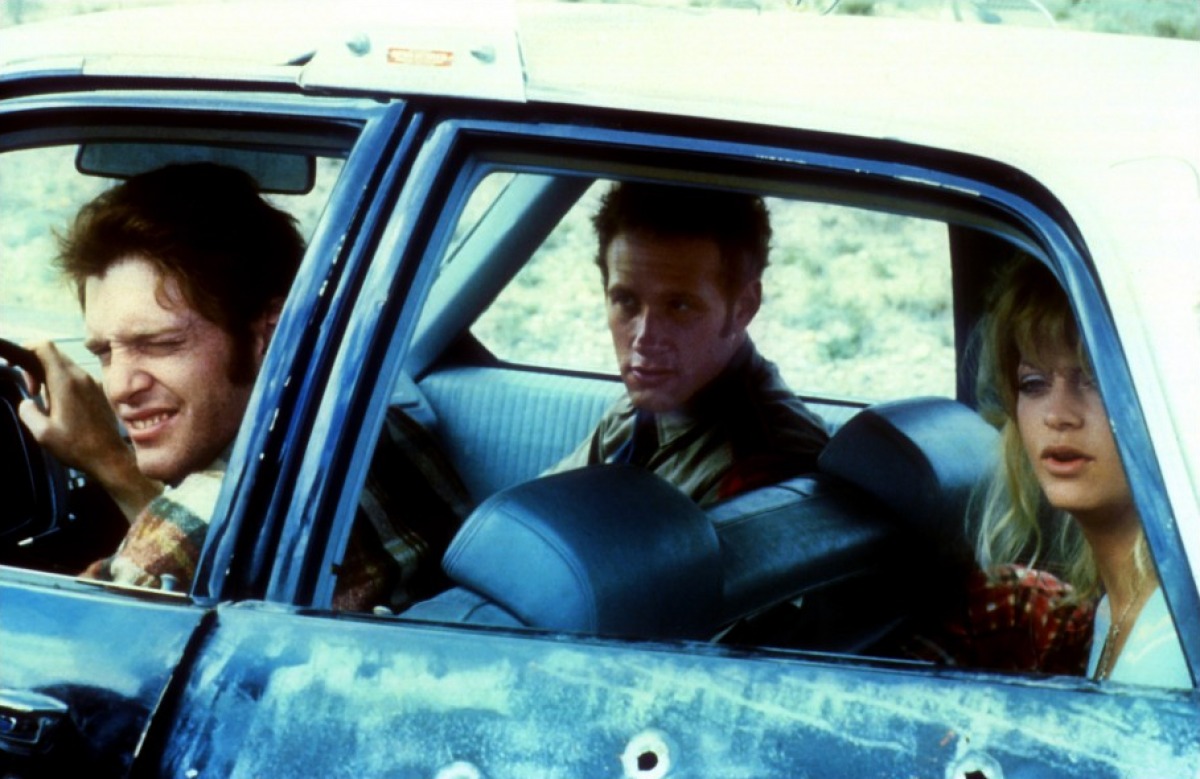
Spielberg’s first feature film is an impressive debut and features a number of signature elements that he would employ in his later work. Based on a true story, The Sugarland Express follows a couple as they go on the lam across Texas to reclaim their son from foster parents with which he has been placed. After Lou Jean (Goldie Hawn) helps her husband Harlin (Ben Johnson) escape from prison, they take a patrolman hostage and are chased across the state by law enforcement as they head towards their son.
Featuring the same appeal to populist tastes that would feature heavily in his later work and scored by John Williams, The Sugarland Express is a low-budget road movie that showed off the technical skills that Spielberg honed in his TV work before switching to features. A hit during its release and still held in high critical regard, it’s a film all Spielberg aficionados should see, particularly for the signature proto-elements that would appear throughout his career.
17. Empire of the Sun (1987)
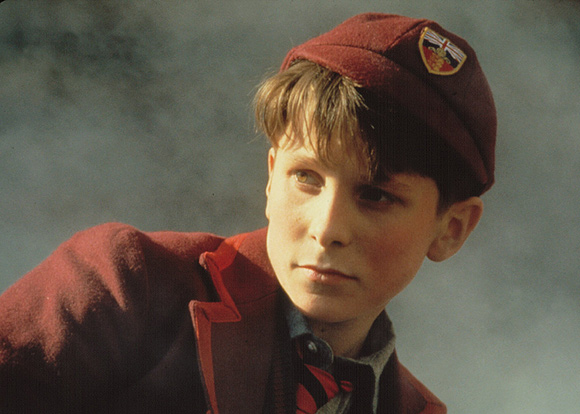
If there’s one historical setting that Steven Spielberg has returned to time and again in his films, it’s World War II. Empire of the Sun follows the story of a young boy (Christian Bale) raised in a wealthy British family in Shanghai to his entrance of a life on the streets after being separated by his parents during the Japanese occupation at the start of the war.
Eventually he becomes a prisoner of war, and he experiences the Pacific war second-hand until the end of combat. Tragedy seems to befall him at every turn, but–keeping in line with Spielberg’s love for happy endings–he is eventually reunited with his parents.
Adapted from J.G. Ballard’s novel, which details his biographical experiences during the war, Spielberg infuses the film with period-accurate sets and props, and the film is appropriately epic in scope. While critics pointed out that the film is rooted in a kid’s vision of the war, this is surprisingly one of the strengths of the film; through a child’s eyes, the grand vision of World War II is distilled, which frames the events to a succinct narrative for a feature film.
Although not Spielberg’s best war movie–and far from his best in general–Empire of the Sun is due for a critical reassessment now 30 years after its initial release.
16. Duel (1971)
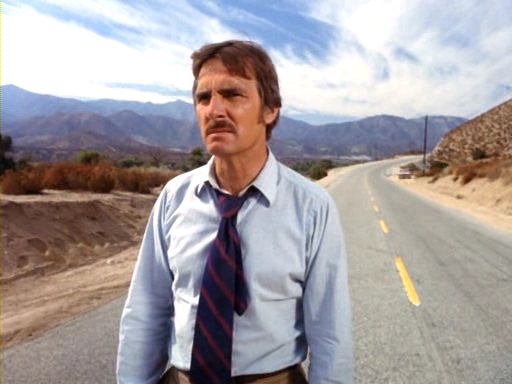
While not a proper feature film but a TV movie Spielberg directed before switching over to features, Duel is still a notable Spielberg creation that highlights his nascent talents. The premise is simple: a man driving through the American southwest finds himself locked into a battle of wills with an unseen driver of a big-rig who torments him after a slight on the highway.
Although not technically a feature film, Duel was a full-length thriller made by a director who would go on to make some of the most thrilling movies of all time. His talents as a director are on full display here, and Spielberg renders a slight premise into a full-length TV movie that’s heavy on suspense. Pacing, tone, and the ability to drive a story full-steam to the end until its premise wears thin is proven in Duel, and for Spielberg aficionados it’s a must-see.